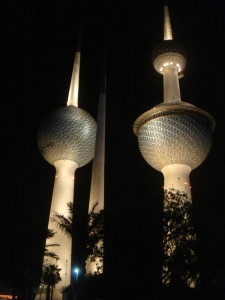Gordon Brown sent shivers down the spines of many ordinary citizens. Yes, in reaction to Israel abusing British sovereignty by using British passports to assassinate a senior Hamas official Brown is going to set up a inquiry.
Taxpayers all over London could be heard collectively groaning as another inquiry gets added to the “Load of old Chilcot” and “Have you seen my Butler?” inquiries.
Yes, an inquiry. Brown did not think it was suitable to call the Israeli ambassador to Downing Street. After all just because many Israelis are all saying it is Mossad and the Israeli government has not denounced it does not mean it was Mossad! Obviously there are thousands of people/organisations/countries with the desire, capability and technique to assassinate a senior Hamas official with a team of operatives with European passports.
Brown has already made sure that an escape route is well established:
“The evidence has got to be assembled about what has actually happened and how it happened and why it happened, and it is necessary for us to accumulate that evidence before we can make statements.”
The reality is that clear evidence will never be obtained, it never is in these types of operations. So knowing this the Guardian reported:
Earlier, the Israeli foreign minister, Avigdor Lieberman, broke his government’s silence saying there was no proof that Mossad was behind the killing. However, he did not explicitly deny any Israeli involvement, saying his government had a “policy of ambiguity” on intelligence issues…Lieberman said he believed that relations with Britain would not be damaged. “I think Britain recognises that Israel is a responsible country and that our security activity is conducted according to very clear, cautious and responsible rules of the game. Therefore we have no cause for concern,” he said.
Lieberman said it: no cause for concern.

 Eleven European citizens, six of them British the rest Irish, French and German passports enter Dubai and assassinate senior Hamas figure Mahmoud al-Mabhouh. Of course they were not European citizens, they were Mossad agents.
Eleven European citizens, six of them British the rest Irish, French and German passports enter Dubai and assassinate senior Hamas figure Mahmoud al-Mabhouh. Of course they were not European citizens, they were Mossad agents. Yemeni fever is everywhere at the moment and while there is a lot of reactionary talk there is also a lot of great commentary being written so here is a short list of some of the stuff that I have recently come across:
Yemeni fever is everywhere at the moment and while there is a lot of reactionary talk there is also a lot of great commentary being written so here is a short list of some of the stuff that I have recently come across: Arriving in Kuwait I am taken on a ‘visit’ of Kuwait which consists of touring the Scientific Center, with Aquarium. Not to be condescending but on walking into the Science Center, which is a very clean glass and steel contemporary building, I am confronted by a, Jaws style, great white shark smashing its way through a concrete wall. In many ways this view captures my preconceptions of Kuwait. As a desert they should be fascinated by water so it should not really come as a sup rise that the first part of “Kuwait” I am shown is the Aquarium. As for the Jaws style great white shark the colonisation of American culture of the Arabian desert city could not be better articulated. The American style highways, with American cars, are lined with American chains such as McDonalnds and 7Eleven. For a country whose Parliament is dominated by Islamists there can be no doubt where the real power lies. The Islamists have however, been able to make sure that Kuwait is T-total. Thus, foreigners are forced with the indignity of having to hold debauched house parties that Kuwaitis can also attend without the inconvenience of getting caught, as in Saudi and Iran.
Arriving in Kuwait I am taken on a ‘visit’ of Kuwait which consists of touring the Scientific Center, with Aquarium. Not to be condescending but on walking into the Science Center, which is a very clean glass and steel contemporary building, I am confronted by a, Jaws style, great white shark smashing its way through a concrete wall. In many ways this view captures my preconceptions of Kuwait. As a desert they should be fascinated by water so it should not really come as a sup rise that the first part of “Kuwait” I am shown is the Aquarium. As for the Jaws style great white shark the colonisation of American culture of the Arabian desert city could not be better articulated. The American style highways, with American cars, are lined with American chains such as McDonalnds and 7Eleven. For a country whose Parliament is dominated by Islamists there can be no doubt where the real power lies. The Islamists have however, been able to make sure that Kuwait is T-total. Thus, foreigners are forced with the indignity of having to hold debauched house parties that Kuwaitis can also attend without the inconvenience of getting caught, as in Saudi and Iran.